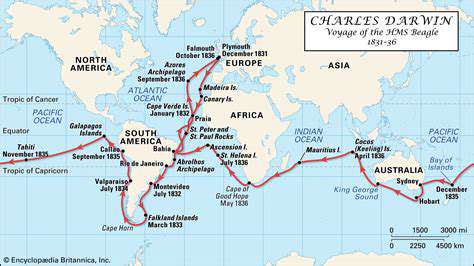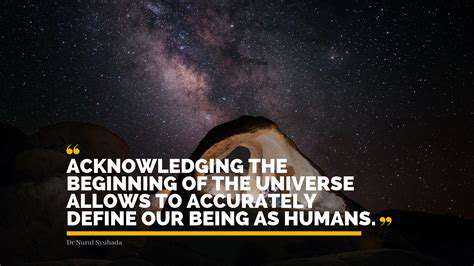
Darwin's Initial Preparations and the Voyage's Purpose
Charles Darwin's voyage aboard the HMS Beagle wasn't a spontaneous decision; it was meticulously planned, reflecting the scientific interests of the time. The expedition's primary goal was to chart the coastline of South America, a task that required detailed mapping and observation of the natural world. This meticulous approach to exploration, however, would ultimately lead to a paradigm shift in scientific thought.
Darwin's background and training played a crucial role in shaping his perspective during the voyage. His earlier experiences with natural history, fueled by his passion for collecting specimens and observing the natural world, provided a foundation for his later discoveries. This early interest in the natural world, combined with the expedition's scientific objectives, set the stage for a remarkable journey of discovery.
The Impact of South American Landscapes
South America, with its diverse landscapes, provided Darwin with a wealth of observations. The Andes mountains, with their soaring heights and unique ecosystems, offered a glimpse into the vastness and complexity of the natural world. Darwin's meticulous notes and observations of these environments were crucial in formulating his later theories.
The sheer scale of the South American continent and its varied ecosystems was truly awe-inspiring, prompting Darwin to question the prevailing notions of the time. These observations, from the towering mountains to the lush rainforests, fueled his curiosity and shaped his understanding of the interconnectedness of life on Earth.
Darwin's Encounters with Diverse Species
Darwin's travels exposed him to a vast array of plant and animal species, many of which were previously unknown to science. The Galapagos Islands, in particular, played a pivotal role in his observations. He noted striking variations in species, such as finches, across the different islands. This led to crucial insights about adaptation.
These encounters with unique species fostered a sense of wonder and sparked his initial ideas about the natural world. The observations on the finches, with their varied beaks adapted to different food sources, provided a critical example of how species could change over time.
The Formation of Darwin's Revolutionary Ideas
Darwin's meticulous record-keeping and observations began to reveal patterns in the distribution and characteristics of species. He noticed how species adapted to their environments, a concept that would later become central to his theory of natural selection. His detailed records formed a crucial part of his developing understanding of the world.
The interplay between species and their environment became a central theme in Darwin's thinking. He began to question the prevailing belief in the immutability of species, and the concept of natural selection began to take shape in his mind.
The Role of the Galapagos Islands
The Galapagos Islands, with their unique isolation and diverse volcanic landscapes, became a crucial testing ground for Darwin's developing ideas. The variations in finch species across the islands, and the adaptation of these birds to their specific environments, served as compelling evidence for his nascent theories.
The Galapagos Islands stand as a potent symbol of Darwin's scientific curiosity and the power of observation. The unique species found there, and their variations, played a critical role in shaping his understanding of evolution.
The Impact of Fossil Discoveries
Darwin's encounters with fossils during his travels were instrumental in shaping his perspective. He observed the remains of extinct organisms, and the similarities and differences between these fossils and living species, further strengthened his ideas about the changing nature of life on Earth. These discoveries were a pivotal aspect of his analysis.
The Development of the Theory of Natural Selection
Darwin's observations and meticulous records, gathered throughout his voyage, eventually culminated in the development of his theory of natural selection. This theory proposed that species change over time through a process of adaptation to their environment. This revolutionary idea would forever change our understanding of life.
Darwin's theory of natural selection, a cornerstone of modern biology, rests on the foundation of his observations during the Beagle voyage. His painstaking work laid the groundwork for a revolution in scientific thought, challenging existing beliefs and opening up new avenues for understanding the natural world.
Parks provide a multitude of recreational opportunities for people of all ages and abilities. From sprawling green spaces perfect for picnics and relaxing strolls to well-maintained sports fields and playgrounds, parks offer a dynamic and versatile environment for leisure activities. This variety of options caters to different preferences and needs, fostering a sense of community and promoting healthy lifestyles.

Modern Scientific Expeditions: Continuing the Legacy of Exploration
Unveiling the Secrets of the Deep Sea
Modern scientific expeditions are pushing the boundaries of our understanding of the ocean's depths, revealing astonishing biodiversity and ecosystems previously unknown to science. These expeditions, employing advanced technologies like remotely operated vehicles (ROVs) and autonomous underwater vehicles (AUVs), are meticulously mapping the seafloor, exploring hydrothermal vents, and collecting samples from the abyssal plains. The data gathered helps us comprehend the intricate relationships within these extreme environments and potentially discover new sources of life or resources.
The sheer scale and complexity of the deep sea remain a significant challenge. Scientists face immense pressure, extreme temperatures, and crushing water pressure as they venture into the unknown. Yet, their dedication and innovative approaches continue to shed light on this largely unexplored realm, leading to remarkable discoveries about marine life, plate tectonics, and the Earth's geological history. These discoveries are crucial for understanding our planet's past, present, and future.
Exploring the Intricate Ecosystems of Remote Regions
From the Amazon rainforest to the Arctic tundra, expeditions are uncovering the delicate balance and interconnectedness of ecosystems in remote regions. Scientists are studying the impact of climate change, deforestation, and pollution on these fragile environments, seeking to understand the intricate relationships between species and their habitats. This research is essential for developing effective conservation strategies and mitigating the negative effects of human activity.
These expeditions often involve collaborations between researchers from diverse disciplines, including biologists, geographers, and environmental scientists. The combined knowledge and perspectives contribute to a more comprehensive understanding of the intricate web of life in these regions. This interdisciplinary approach allows scientists to tackle complex problems and develop innovative solutions to protect these unique environments for future generations.
Investigating the Origins of Life on Earth
Modern scientific expeditions are not only focused on the present but also on understanding the past. By studying ancient geological formations, analyzing fossils, and exploring extreme environments, researchers are piecing together the story of life's origins on Earth. These expeditions often involve fieldwork in remote locations, requiring meticulous planning and execution to collect valuable samples and data.
These investigations into the early Earth's conditions can reveal key insights into the processes that led to the emergence of life. This knowledge is vital for understanding the conditions necessary for life to thrive and for developing strategies to search for life beyond Earth. Ultimately, these explorations provide a deeper appreciation for the history and evolution of our planet.
Unraveling the Mysteries of the Universe
Modern scientific expeditions extend beyond our planet, venturing into the vast expanse of the universe. Telescopes and space probes are used to collect data about distant galaxies, stars, and planets, revealing the secrets of the cosmos. These observations are crucial for understanding the formation and evolution of the universe, the potential for life beyond Earth, and the fundamental laws of physics.
The exploration of space, like expeditions to remote regions on Earth, requires advanced technology, international collaboration, and a profound understanding of the universe. The discoveries made through these expeditions not only expand our knowledge of the cosmos but also inspire future generations of scientists and explorers.











